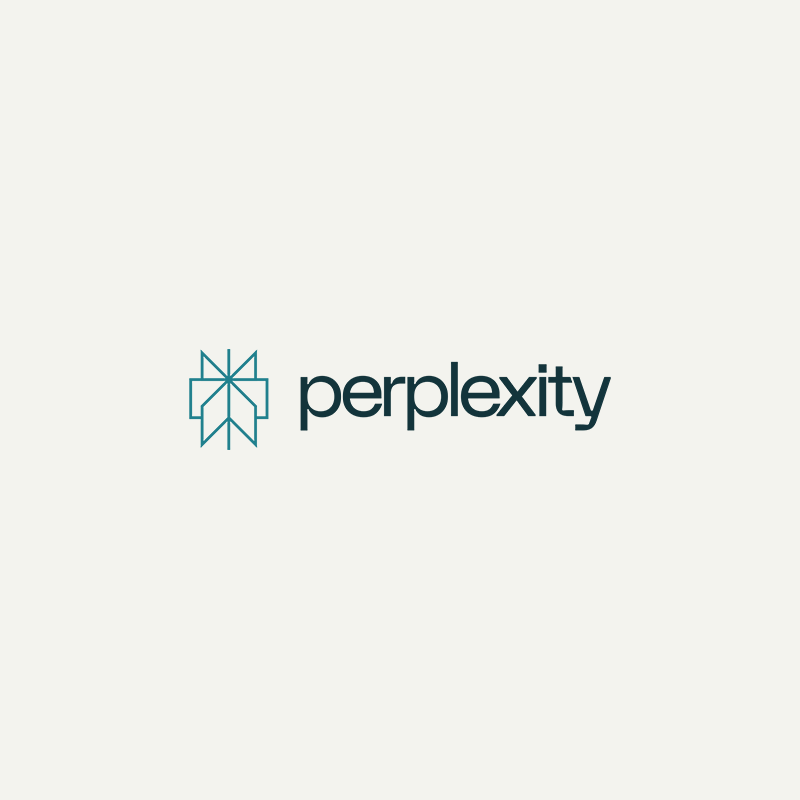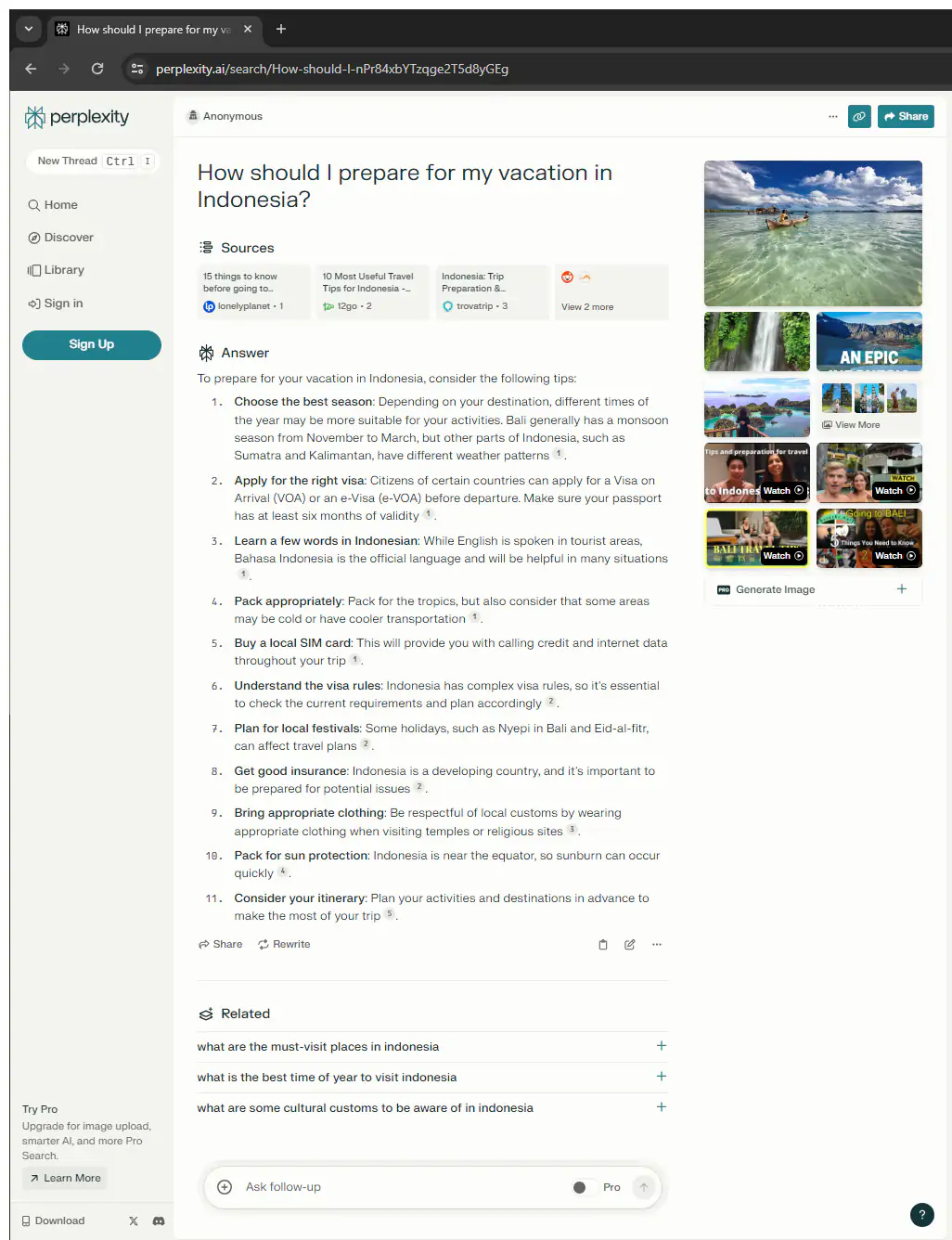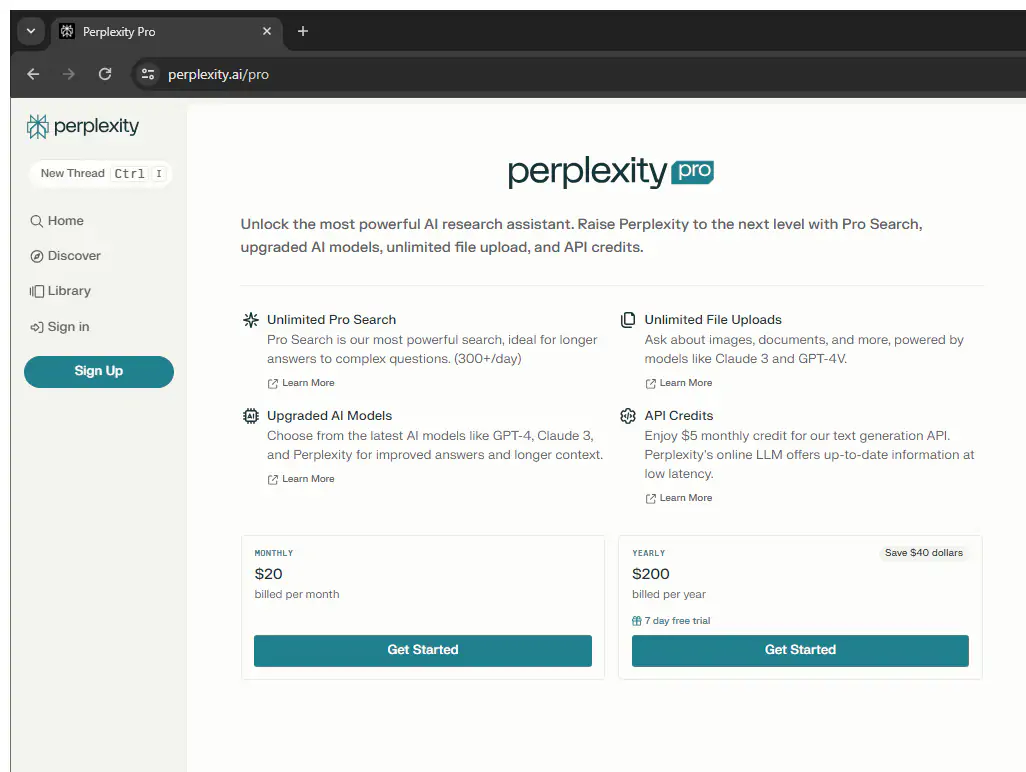
AI is only as good as the data is has been trained on. And when it comes to the modern days of tech, data is abundance.
With more capable software and more capable hardware, AI is only going to get smarter. And Perplexity is trying to use this fact by going against the largest internet giant of them all, Google, and wage a war that nobody in their right mind would even think of doing.
This comes after the company has been praised by tech CEOs, and has successfully raised over $100 million in venture capital.
Perplexity, which uses AI to power its conversational search results, is thinking of dethroning Google using AI.
Aravind Srinivas, the Perplexity co-founder and CEO, is pioneering a new way to search the web.
Read: AI-Based Search Engine Can Make Google Look 'Legacy And Old'
The way people search the web, is by inputting a query, and then wait for the result to return.
Users then sift through the list of links, some of them paid for, some gamed to show up high on the page due to their high relevancy, high traffic, properly maintained and optimized.
This has remained virtually unchanged for decades, most notably since Google was born.
But then came AI chatbots, which can understand plain-language questions and return direct answers.
Perplexity uses a combination of its homegrown large language models (LLMs), third-party models (OpenAI’s GPT-4 and Anthropic’s Claude 2, among others), and its own web crawlers to return results.
Its main weapon to fight Google, is its approach of having a retrieval-augmented generation (RAG), which can be described as an AI that finds the right documents on the web to help the LLM create more contextualized and accurate answers.
The result is a search engine that can answer open-ended questions, such as "How should I prepare for my vacation in Indonesia?"
At this time, searching for something online, can go down to two ways: use a search engine, like Google or Bing, or ask verbose question to an AI chatbot, like ChatGPT, Copilot, Gemini, or some others.
Ideally, users would do both, jumping back and forth between webpages served up by search engines and AI chatbots, crosschecking results in the quest to find the most reliable sources.

Perplexity aims to reshuffle the internet search industry, which is already worth hundreds of billions of dollars, and dominated by Google.
It tries to do this, by becoming the one tool that can do both, by simply merging online search with popular existing AI models in a way that’s potentially really useful.
Perplexity has its own search engine that delves into the web and scrapes the latest information.
Then it provides users with that information, and cites the sources, so users can easily determine whether the AI is trustworthy without doing the extra work of fact-checking.
But in all, its main focus, is being a chatbot for a search engine.
Users can ask it a question, and refine that question with follow up questions.
Users can even refine the results, like using the 'Focus' feature to only return results from particular parts of the internet.
Perplexity is the "answer engine" the internet is keen to have, especially during the generative AI trend kickstarted by OpenAI, following the introduction of ChatGPT.
The one-year-old product is said to have been downloaded more than 2 million times, and is responding to more than 1 million queries per day from users using its website and mobile apps.
As for its business model, Perplexity offers a Pro subscription, where paying users can enjoy 'Unlimited Pro Search', which is ideal for longer answers to complex questions, 'Unlimited File Uploads' where users can upload files without limits, and 'Upgraded AI Models' where users can use Perplexity using AI models like Claude 3.

At first glance, results returned by Perplexity is like any other generative AI-powered chatbots with internet access.
For starter, referencing sources for users to navigate to, and more ways to interact with the bot, Perplexity looks pretty similar to Microsoft's Copilot. And by returning answers by scouting relevancy through ranking signals as indicators, Perplexity is also similar to Google's Gemini, and also Google Search.
Srinivas however, maintains that Perplexity does not copy Google’s results.
While it does access data about Bing’s and Google’s ranking signals through automated systems known as APIs, Perplexity uses its own search engine bots to crawl and index websites, meaning that it scouts the web on its own.
"We do not have to challenge Google’s search market share in order to succeed," said Srinivas. "In fact, that’s precisely why I think we have a winning shot: We are operating in a new segment of AI assistants, chatbots, and answer bots where new businesses and products will continue to be created."
The overlap in Perplexity’s and Google’s results could be due to both services examining the same set of web pages, as many results on Bing are also similar to those on Google.
While Perplexity is showing itself, and the world, that it's more than capable, its use of Google’s ranking data could undermine its claims about the strength of its technology.
Using Google’s search ranking results also mean that Perplexity needs to follow Google's rules, and that it can never be totally dependent. What's more, Perplexity could as well violate the company's terms of service, even when the courts have ruled that web scraping is legal.
And also, one of its technology providers, OpenAI, also prepares to launch its own consumer search engine, and this could translate to more competition.

Ultimately, which tool to choose comes down to past experience, and the expected experience.
Users who are happy with Google, will continue using Google Search and Gemini, and as long as they're happy with the products, they won't likely to shift. And not to mention, Google also has the 'Search Generative Experience' experiment, which combines both AI and search into one product.
The same goes to those who love Microsoft, will continue using Bing and its Copilot, as long as the products satisfy them.
But overall, Perplexity AI can be a powerful rival because it does introduce something new to the table.
It’s important to note that Perplexity is best as a research tool to find answers, facts, and information, rather than to generate text.
As the AI search landscape continues to evolve, the AI industry is becoming so lucrative that it becomes so alluring for the many companies, new and old, to try their chances.
The revelations about Perplexity’s use of Google’s data raise questions about the unknowns surrounding some of the world’s most valuable new AI services and the potential legal and reputational risks AI developers face.
At this time, Perplexity has become the default search engine option in the Arc browser.